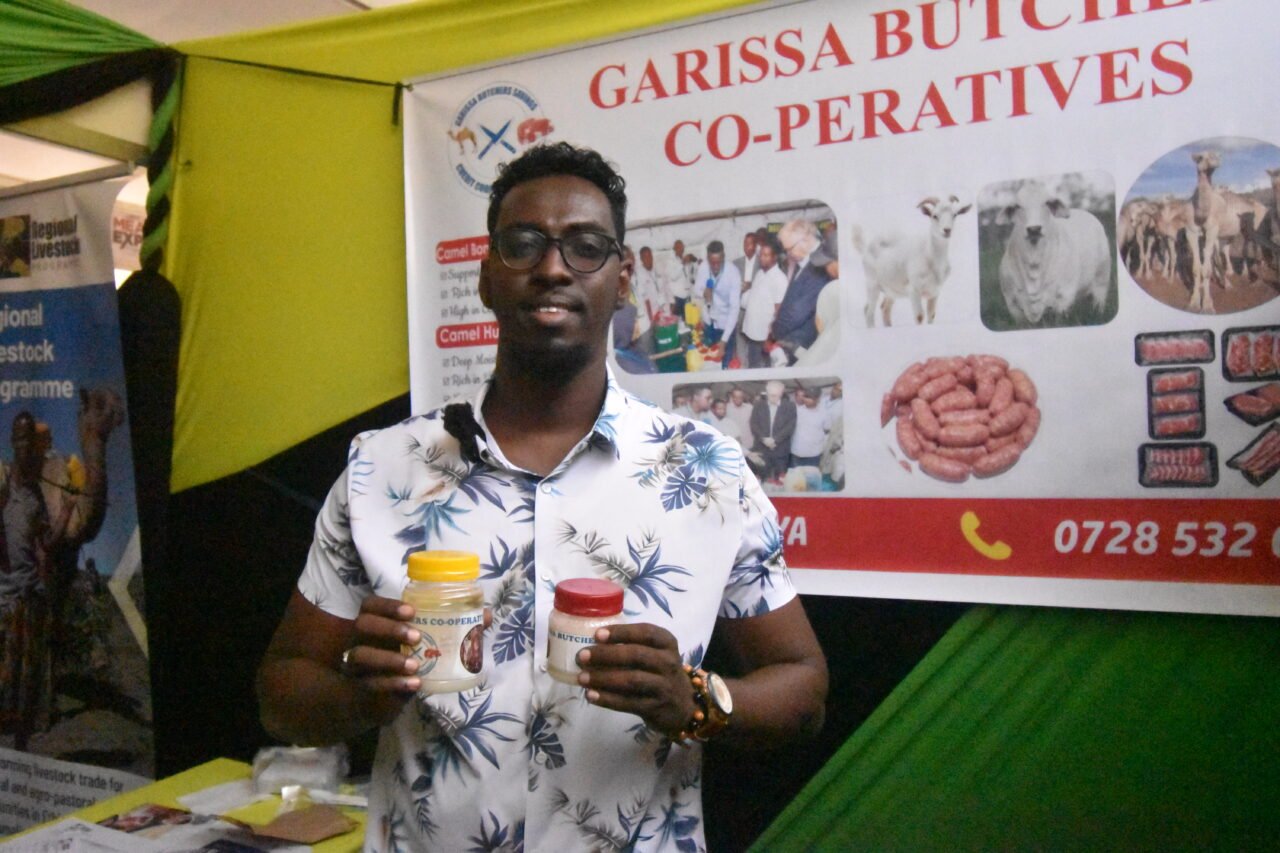Camel meat sausages: Kenya’s new Halal breakfast twist
At the Kenya Meat Expo, a young Garissa co-operative turned heads with an unexpected twist on a breakfast favourite — camel meat sausages. Blending cultural sensitivity with health benefits, they’re carving out a new niche in Kenya’s growing Halal and health-conscious market.
By Benson Ltamely
When you think of sausages, what comes to mind?
A nice, tasty delicacy made from beef, pork, chicken, or even mushroom, readily available in supermarkets, sizzling on breakfast tables, and loved for their quick preparation and irresistible taste.
But there’s a new player quietly making its way onto the Kenyan plate: camel meat sausages.
More than just a culinary twist, they are emerging as a culturally sensitive and nutritionally rich alternative, especially for Kenya’s Muslim population, who often avoid mainstream sausages due to concerns about pork. This innovation is not only about inclusivity, but also about capturing a niche market that’s increasingly defined by demand for Halal-certified, health-conscious options.
This year’s Kenya Meat Expo at the Kenyatta International Convention Centre (KICC) offered the perfect stage for such innovation. The venue buzzed with activity, from panel discussions on sustainability in the meat value chain to exhibitors unveiling the latest in value addition, livestock insurance, animal feeds, and vaccine manufacturing.
Among them was the Garissa Butchers Co-operative, where the Smart Farmer Africa team met Abdi Aden, a 26-year-old IT graduate from Garissa University. Standing behind a neatly arranged table of camel meat products, Aden engaged curious visitors alongside a colleague.
Aden is the Vice Chairperson of the 64-member co-operative, formed in 2021 to support butchers in Garissa and attract funding from partners such as Mercy Corps. “Most of our members have been running individual butcheries,” he explained. “We saw the need to come together to scale-up and reach bigger markets.”
Behind them hung a banner showcasing their range: camel hump oil, camel bone marrow oil, nyirinyiri (dried and fried camel meat), and their soon-to-launch star product — camel meat sausages.
“We’ve already bought some equipment and plan to start production in a few months,” Aden revealed.
So why camel sausages when the market is dominated by beef, chicken, and pork?
Aden’s answer was simple but powerful:
“We are a Muslim community and we do not eat pork. We only eat Halal meat. Many sausages in the market are avoided because people are unsure about what’s inside.”
In Islam, Halal certification goes beyond the type of meat — it covers hygiene, who performs the slaughter, and even the direction the animal faces when slaughtered (toward Mecca). Many conventional sausages don’t meet these standards, leaving Muslim consumers with limited choices.
But tastes are shifting. “Many young people from our community now love sausages,” Aden said with a smile. “So we thought — why not make them from camel meat? This meat has long been enjoyed in certain cultures, and now more Kenyans are beginning to appreciate its unique flavour and health benefits.”
Camel meat is gaining a following not just for religious reasons, but for its health benefits too. According to Science Direct, it is high in fibre, rich in vitamins D, E, and K, and packed with omega-3 fatty acids —nutrients linked to reduced risks of obesity, cancer, type-II diabetes, cardiovascular diseases, and bowel disorders.
For now, the co-operative’s bestsellers remain their hump oil, bone marrow oil, and nyirinyiri — sold mainly through online platforms and even shipped abroad to customers in diaspora in the US and Europe.
And Aden’s entrepreneurial spirit doesn’t end at meat. He also runs EmpowerwithIT, a youth hub that trains young people in coding, programming, and digital marketing — proof that innovation can thrive both in the tech lab and at the butchery counter.



